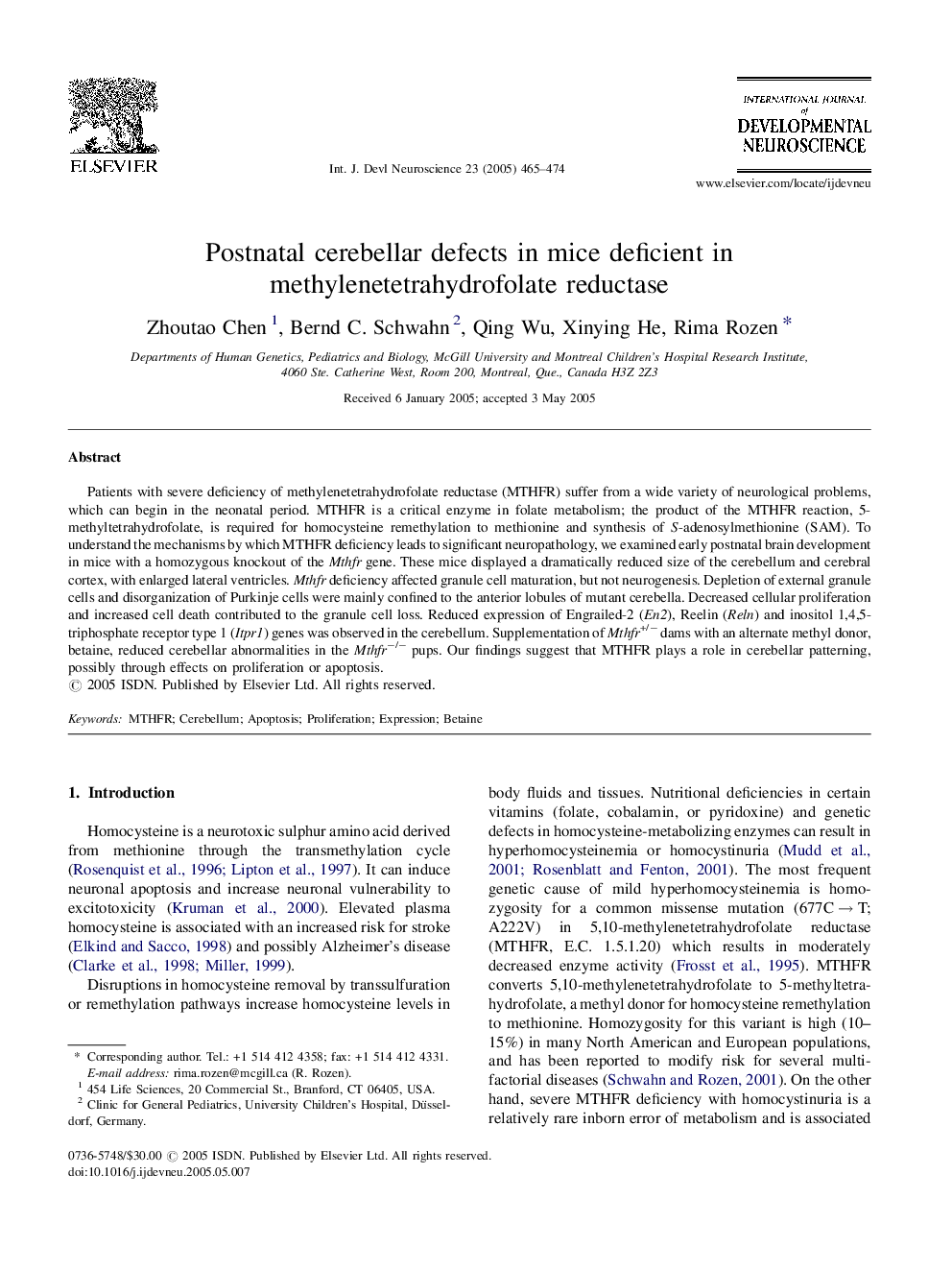| Article ID | Journal | Published Year | Pages | File Type |
|---|---|---|---|---|
| 9933577 | International Journal of Developmental Neuroscience | 2005 | 10 Pages |
Abstract
Patients with severe deficiency of methylenetetrahydrofolate reductase (MTHFR) suffer from a wide variety of neurological problems, which can begin in the neonatal period. MTHFR is a critical enzyme in folate metabolism; the product of the MTHFR reaction, 5-methyltetrahydrofolate, is required for homocysteine remethylation to methionine and synthesis of S-adenosylmethionine (SAM). To understand the mechanisms by which MTHFR deficiency leads to significant neuropathology, we examined early postnatal brain development in mice with a homozygous knockout of the Mthfr gene. These mice displayed a dramatically reduced size of the cerebellum and cerebral cortex, with enlarged lateral ventricles. Mthfr deficiency affected granule cell maturation, but not neurogenesis. Depletion of external granule cells and disorganization of Purkinje cells were mainly confined to the anterior lobules of mutant cerebella. Decreased cellular proliferation and increased cell death contributed to the granule cell loss. Reduced expression of Engrailed-2 (En2), Reelin (Reln) and inositol 1,4,5-triphosphate receptor type 1 (Itpr1) genes was observed in the cerebellum. Supplementation of Mthfr+/â dams with an alternate methyl donor, betaine, reduced cerebellar abnormalities in the Mthfrâ/â pups. Our findings suggest that MTHFR plays a role in cerebellar patterning, possibly through effects on proliferation or apoptosis.
Related Topics
Life Sciences
Biochemistry, Genetics and Molecular Biology
Developmental Biology
Authors
Zhoutao Chen, Bernd C. Schwahn, Qing Wu, Xinying He, Rima Rozen,
